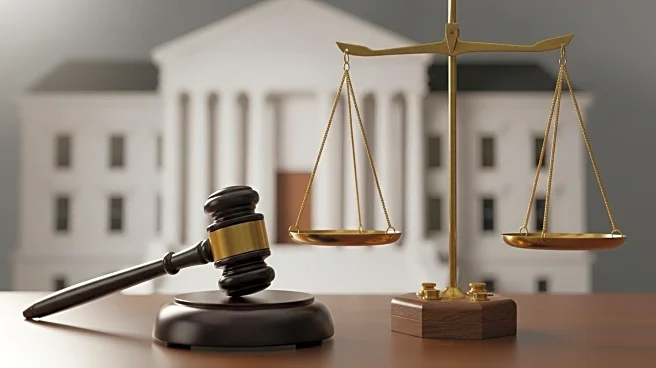What's Happening?
A federal appeals court has upheld a decision preventing President Trump from deploying the National Guard in Illinois, specifically in the Chicago area. This decision follows a ruling by U.S. District Judge April M. Perry, who blocked the deployment citing potential civil unrest. Illinois officials argued that the deployment would infringe on the state's sovereignty and was an illegal seizure of control over the state's National Guard. The Trump administration had initiated an immigration enforcement mission in Chicago, leading to protests outside an Immigration and Customs Enforcement facility in Broadview. Federal agents have used tear gas and other projectiles against protesters, claiming ongoing attacks necessitated troop deployment to protect federal personnel and property.
Why It's Important?
The court's decision is significant as it underscores the tension between federal authority and state sovereignty. It highlights the legal and political challenges in deploying federal troops domestically, especially in areas with ongoing civil unrest. The ruling may set a precedent for similar cases where federal intervention is contested by state officials. The decision also reflects broader national debates on immigration enforcement and the use of military force in civilian contexts. Stakeholders such as state governments, civil rights groups, and federal agencies are closely watching the implications of this ruling, which could influence future federal-state relations and enforcement strategies.
What's Next?
The Trump administration has appealed the decision, seeking to overturn Judge Perry's ruling. The Justice Department has requested the 7th Circuit to pause Perry's order during the appeal process. Meanwhile, Illinois and Chicago officials maintain that the ruling should stand, arguing that there is insufficient evidence to justify troop deployment. The case may progress to higher courts, potentially reaching the Supreme Court if further appeals are made. The outcome could impact federal strategies in other states facing similar issues, and influence public policy on federal intervention in state matters.
Beyond the Headlines
This legal battle raises questions about the balance of power between federal and state governments, particularly in the context of civil unrest and immigration enforcement. It also touches on the ethical considerations of using military force in civilian areas, and the potential for escalating tensions rather than resolving them. The case may prompt discussions on the role of the National Guard and the limits of presidential authority in domestic affairs.








